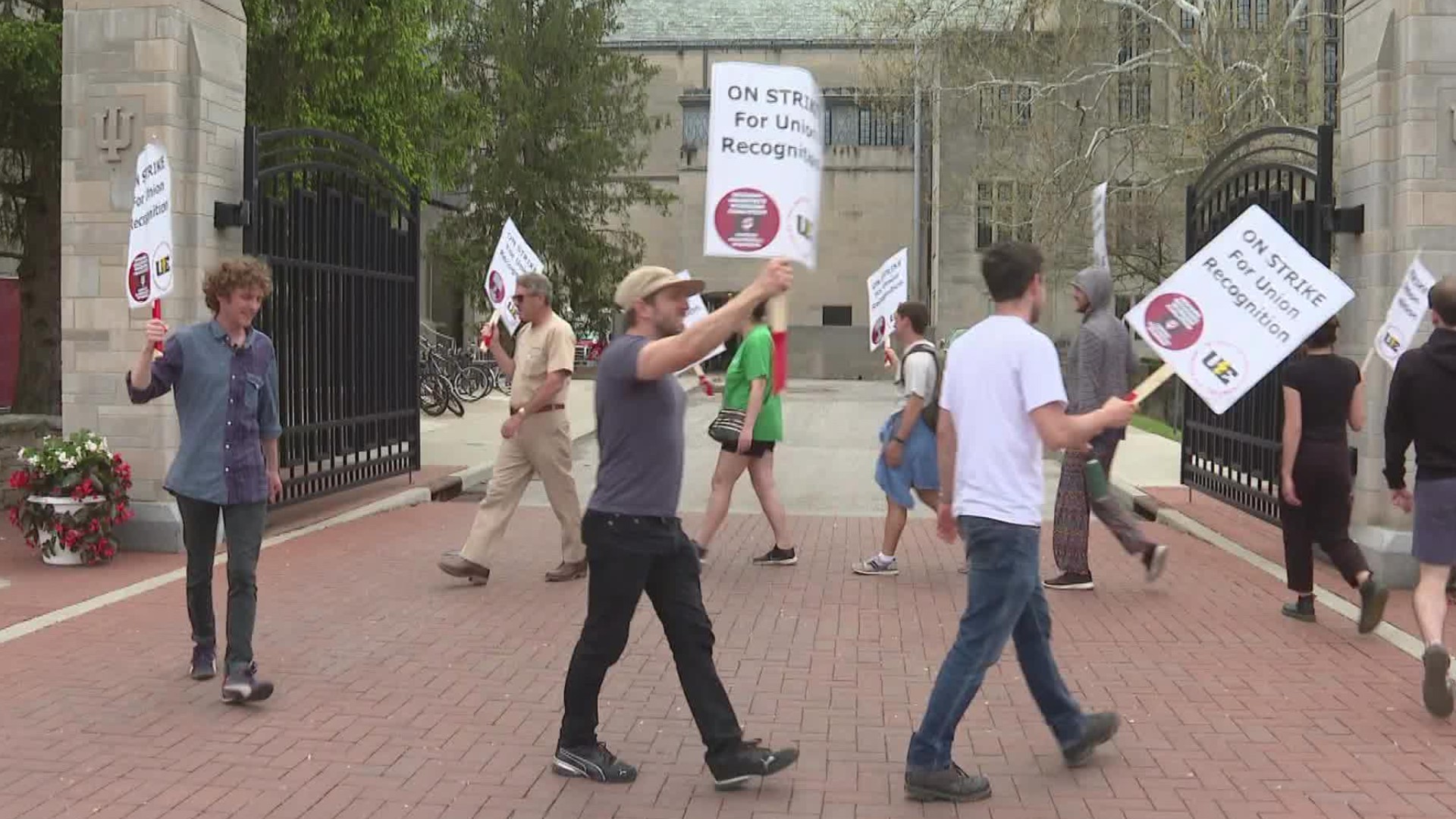BLOOMINGTON, Indiana — With the first few days of the fall semester in the books, students at Indiana University in Bloomington are settling back into their school routine.
That includes graduate student workers, many of whom spent much of April and May on strike, demanding that the university administration recognize them as a union as they fought to end mandatory fees and raise stipends off of which many grad workers struggle to live.
"For years and years and years, they told us it would be impossible to get rid of mandatory fees, there was no way to do it," said aid Anne Kavalerchik, a dual Ph.D. student in sociology and informatics. "And then, all of a sudden, they did it."
"Among our union, it really made us feel like these things we're demanding, they're very reasonable," she added. "They're not impossible, and we know that when the university says they're impossible, it's not true. We know that if they want to make it happen, they could and this time they did."
In the time since the grad student strike began, the university's administration has made strong changes.
In the spring, IU announced it would be raising the minimum stipend amount for graduate student workers - or student academic appointees, as they're sometimes referred to - up to $18,000. In August, IU announced it would be raising the minimum stipend even further, up to $22,000.
In addition, IU announced it would be waiving the mandatory graduate student fees that SAAs were paying to the university, meeting another key platform point of grad student workers who went on strike.
These changes, announced by President Pamela Whitten and Provost Rahul Shrivastav earlier this month, were made as a result of initial recommendations from the Task Force on Graduate Education. They mark a major victory for graduate student workers, but Kavalerchik said more is needed.
"This raise that we recently received, it was the first raise that many graduate workers received in 10 years, and it was a result of the strike," Kavalerchik said. "Without a union, we would have to strike every single time we need a raise. That is disruptive to higher education in Indiana, that is unbecoming for a place of employment and it's unsustainable at all levels. It would be much easier for them to just recognize our union."
After voting in May to suspend the strike over the summer, graduate student workers will come together in September for another vote, this one to see if they'll extend their strike for unionization into the fall.
“We don’t want to cause this disruption," said Kavalerchik said. "We come here because we want to teach, we want to research, we want to do the things we came to academia to do. It’s a distraction for us to plan a strike but the administration has given us no choice other than to strike to even communicate with us."
Kavalerchik said she and other graduate student workers are hopeful that with so much progress being made, a continued strike will finally bring IU's administration to the bargaining table and resolve these issues once and for all.
"We do see union recognition, we see ourselves having a seat at the table as the goal. That was the goal of the previous strike and that is still the goal of this coming strike," said Kavalerchik.

